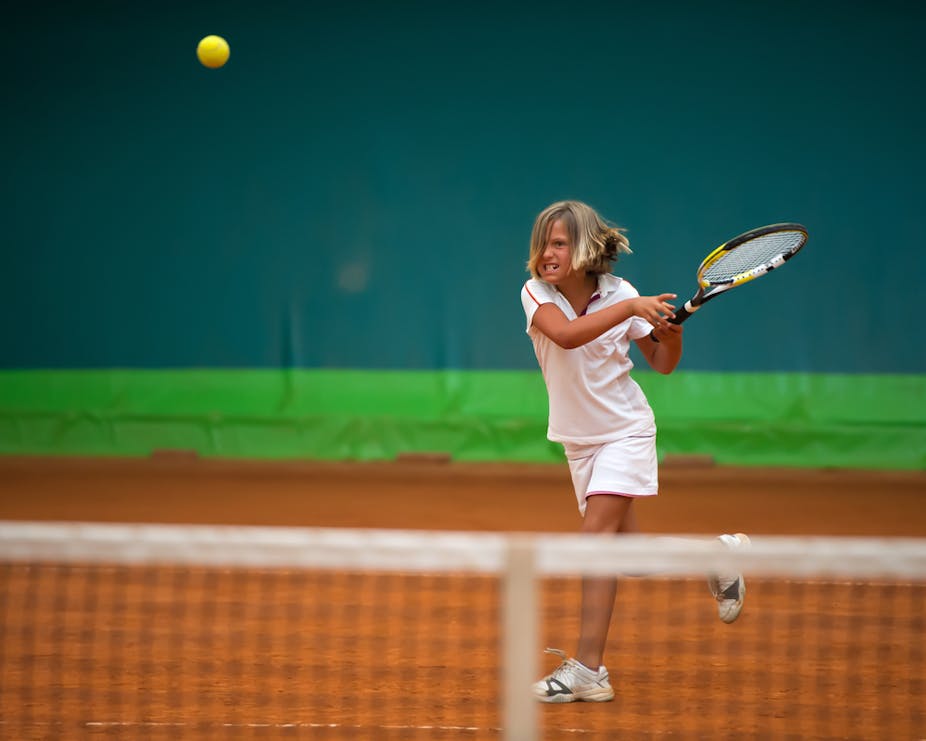Children differ widely in how well they do in exams, and researchers are still trying to understand which factors can predict or explain these differences, and if genes play a part. Now our new study has found that contrary to previous research, there is little to suggest that “grit” – or a child’s perseverance and passion for long-term goals – has an impact on their exam results.
Previous research has shown that a child’s personality can predict a significant, although modest, proportion of the differences between children’s grades at school. For example, a link between conscientiousness and school achievement can explain around 4% of the differences in children’s grades.
Research has also shown that grit is associated with academic achievement and life outcomes – even when intelligence and other personality factors are controlled for.
Yet, most of the research to date has used restricted samples, for example undergraduate students, teachers and children who were finalists in spelling competitions. Much less is known about the association between grit and academic achievement in the general population. It is also largely unknown why people have such different levels of grit.
To answer this question and explore the relationship between grit and academic achievement, our research used a sample of 4,500, 16-year-olds (from 2,300 pairs of twins) who are part of the UK Twins Early Development Study. By studying the origins of grit and its association with GCSE exam results, we found that grit actually has little impact on exam results.
Measure your true grit
We used the “Grit-S” questionnaire to measure each teenager’s level of perseverance and how consistently they held an interest in a task. To measure their perseverance, the participants rated the extent to which they agreed with statements such as “setbacks don’t discourage me”. To measure how consistently they maintained an interest in something, we asked them whether they agreed that: “I have a difficulty maintaining my focus on projects that take more than a few months to complete.”
We also gave them a questionnaire to assess their level of each of the “big five” personality traits: extroversion, agreeableness, neuroticism, openness and conscientiousness.
By using twins in our study we were able to look at why people differ in the amount of grit they have – and if genes played a part. We compared identical twins, who share 100% of their genes, to non-identical twins, who share on average 50% of the genes that vary between people.
This meant we could estimate whether differences we observed were down to differences in the twins’ DNA sequence (known as heritability), their shared environment (such as school and family influences) or their non-shared environment – such as different friendship groups. If identical twins are more alike on a particular trait, such as grit, than non-identical twins, we can infer that this trait is influenced by their genes.
Our results showed that whether or not a person has more or less grit is substantially influenced by their DNA – and explains around a third of the differences between people’s level of grit. We showed that grit is highly similar to other personality traits, showing substantial genetic influence and no influence of shared environmental factors.
Weak link with exam results
Leaving genes aside, when we looked at the relationship between personality and academic achievement, we found that the big Five personality traits – mainly conscientiousness – explained 6% of the differences between exam results of the 16-year-olds in our study. But after controlling for these personality traits, grit on its own did little to influence academic achievement, explaining only an additional 0.5% in people’s GCSE results.

These results should warrant concern given education policy directives in the US and in the UK, which emphasise the importance of grit and character education. It’s clear from our study that more research must be done before concluding that a certain type of teaching or classroom intervention are beneficial for academic achievement or other life outcomes.
We’re not suggesting that it’s impossible to teach children to be grittier, or denying that it’s beneficial to build habits of working hard or continuing in the face of adversity. But our findings suggest that grit is not a good way of predicting whether a child will get good grades. So while increasing grit or perseverance could have long-term benefits for children, it is unlikely to improve their academic achievement.

